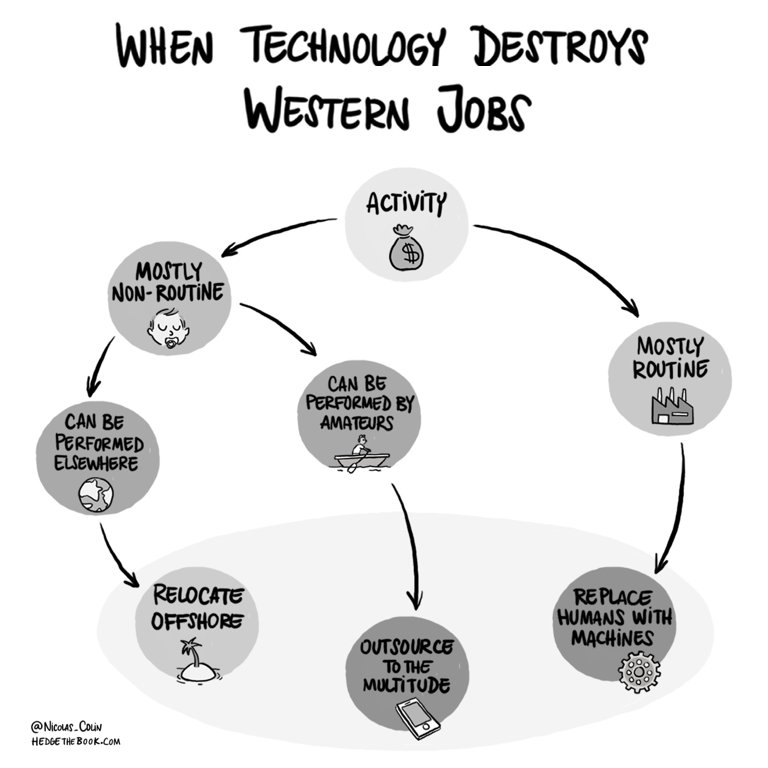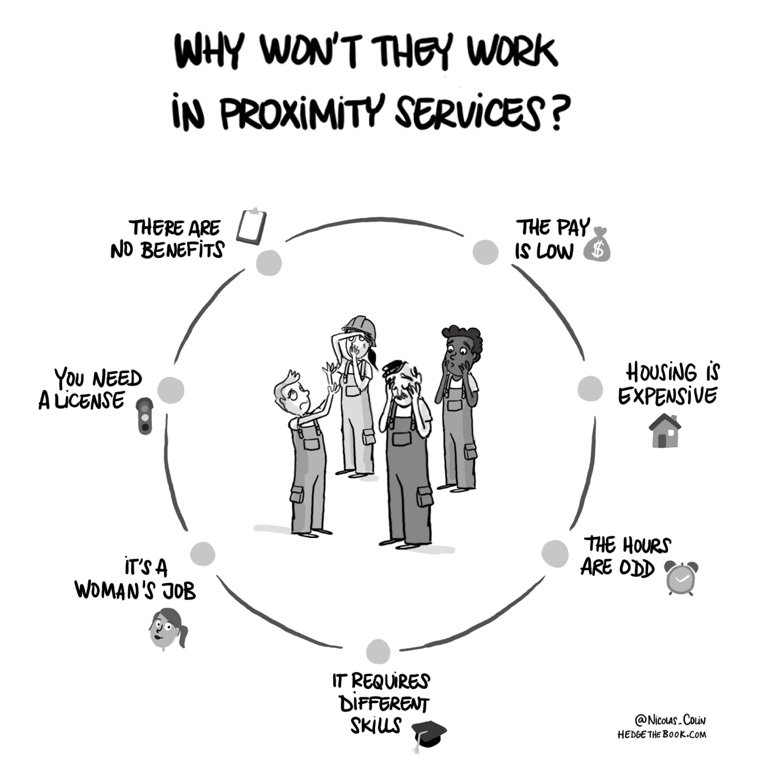We often hear politicians / economists lecture us on the importance of lifelong training for desperate workers who just lost their job.
Remember Tony Blair's "Education, education, education"? People were thrilled at the time. Today, they can't stand it anymore—and they're right: it didn't work!
That's the first problem.
This => "It works for everyone *but me*".
No wonder why those people are attracted to populism and see immigrants as a threat: "Those immigrants are even less skilled than I am, but they have a job and I don't". Cc @Noahpinion
See this article about all these lousy jobs that "real Americans" won't touch: slate.com/articles/busin…
We need to realize this: there will be many jobs in the future for "low-skilled" workers. But those will be very different.
See this extract of my book "Hedge" ⤵️ hedgethebook.com 📕

#1 is that those jobs are not attractive—yet. We need to imagine institutions so that they become good jobs—a "Greater Safety Net", as discussed in my book hedgethebook.com 📕
There are many reasons for that—see my book hedgethebook.com of which this illustration is extracted ⤵️ Cc @tamaradraut

BTW it's easier than ever since fascinating ventures such as @LambdaSchool and @OpptyatWork are dedicated to enable just that cc @byron_auguste @AustenAllred
amazon.com/Hedge-Greater-…




